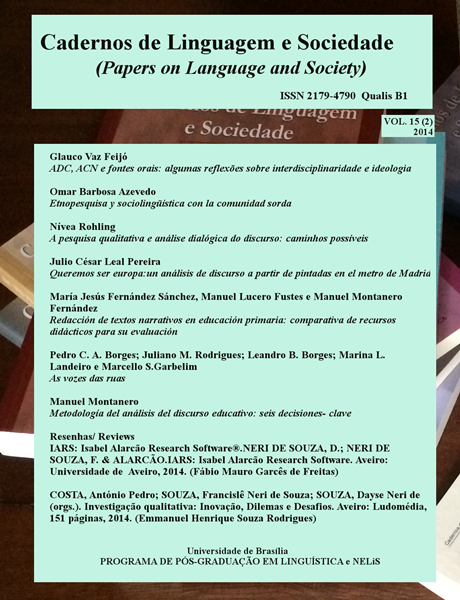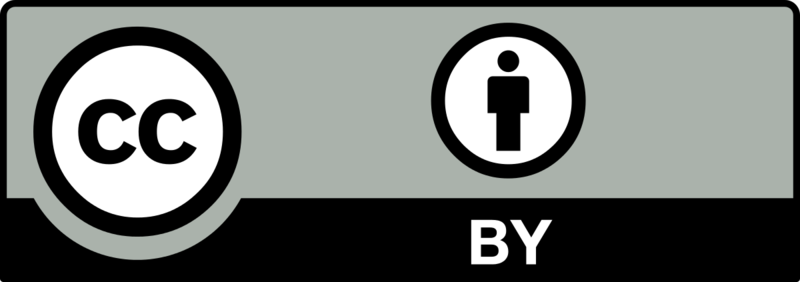Writing narrative texts in Primary Education: Relationship between teaching resources for its assessment
DOI:
https://doi.org/10.26512/les.v15i2.7563Keywords:
Assessment, writing, written feedback, correlational analysis, rubric, Primary Education.Abstract
The act of writing texts is a common practice in the classroom and teachers suffer difficulties to assess writing ability due to poor teacher training and to the lack of tools to assess this skill. Therefore, we plan to explore if the rubric could be a good tool for assess Primary Education students’ narrations. A total of 128 stories written by Primary Education students were analyzed using: a standardized test (PROESC: assessment of writing processes), a rubric and, also, the texts were graded by 4 teachers (unaware of the research). Also was taken into account the qualifications in Spanish language obtained by students that wrote the texts. The results show that the relationship between the criteria that evaluate similar elements of PROESC and rubric is significant in all cases. This trend of results has also been located between the two tools, the grade of teachers and the grade in Spanish Language; aspect that is positive to the validity of the rubric explored.
Downloads
References
Andrade, H., Du, Y. y Wang, X. Putting rubrics to the test: The effect of a model, criteria generation, and rubric-referenced selfassessment on elementary school students’ writing. En: Educational Measurement: Issues andPractices, vol. 27 (2), pág. 3-13. Hoboken: Wiley-Blackwell, 2008.DOI: 10.1111/j.1745-3992.2008.00118.x
Andrade, H., Wang, X., Du, Y. y Akawi, R. Rubric-referenced self-assessment and selfefficacy for writing. En: The Journal of Educational Research, vol. 102 (4), pág. 287-304. Champaign: Universidad de Illinois, 2009. DOI: 10.3200/JOER.102.4.287-302.
Bannert, M. Promoting self-regulated learning through prompts. En: Zeitschrift Fur Padagogische Psychologie, vol. 2 (23), pág. 139-145. Göttingen: Hogrefe Verlag, 2009. DOI: 10.1024/1010-0652.23.2.139
Barbot, B., Tan, M., Randi, J., Santa-Donato G. y Grigorenko, E. L. Essential skills for creative writing: Integrating multiple domain-specific perspectives. En: Thinking Skills and Creativity, vol. 7 (3), pág. 209-223. Oxford: Elsevier, 2012.DOI: 10.1016/j.tsc.2012.04.006
Barton, D., Hamilton, M., e Ivanic, R. (Eds.). Situated literacies: Reading and writing in context. London: Routledge, 2000.
Beauvais, C., Olive, T. y Passerault, J. M. Why are some texts good and others not? Relationship between text quality and management of the writing process. En: Journal of Educational Psychology, vol 103 (2), pág. 415-428. Washington, D. C.: American Psychological Association, 2011. DOI: 10.1037/a0022545
Bereiter, C. y Scardamalia, M. The psychology of written composition, Hilsdale, NJ: Erlbaum, 1987.
Butterfield, E., Hacker, D. y Alberstong, L. Environmental, cognitive and metacognitive influences of text revision: Assessing the evidence. En: Educational Psychology Review, vol. 8(3), pág. 239”“297. Berlín: Springer, 1996. DOI: 10.1007/BF01464075
Carey, L. J., y Flower, L. Foundations for creativity in the writing process: Rhetorical representations of ill-defined problems. Berkeley, CA y Pittsburgh, PA: Center for the Study of Writing (Tech. Rep. No. 32), 1989.
Castelló, M. De la investigación sobre el proceso de composición a la enseñanza de la escritura. En: Revista Signos, vol. 35 (51”“52), pág. 149”“162. Pontificia Universidad Católica de Valparaíso: Viña del Mar, 2002.
Chen, S. y Zhou, J. Creative writing strategies of young children: Evidence from a study of Chinese emergent writing. En: Thinking Skills and Creativity, vo. 5 (3), pág. 138-149. Oxford: Elsevier, 2010.DOI: 10.1016/j.tsc.2010.09.002
Cremin, T. y Myhill, D. Writing voices: Creating communities of writers, London: Routledge, 2012.
Cuetos, F. Ramos, J. L. and Ruano, E. PROESC: Batería de evaluación de los procesos de escritura. Madrid: TEA Ediciones, 2002.
De Smet, M. J. R., Brand-Gruwel, S., Leijten, M. y Kirschner, P.A. Electronic outlining as a writing strategy: Effects on students’ writing products, mental effort and writing process. En: Computers & Education, vol.78, pág. 352-366. Oxford: Elsevier, 2014.DOI: 10.1016/j.compedu.2014.06.010
[16] Dempsey, M. S. PytlikZillig, L. M. and Bruning, R. H. Helping preservice teachers learn to assess writing: Practice and feedback in a Web-based environment. En: Assessing Writing, vol. 14 (1), pág. 38-61. Oxford:Elsevier, 2009.
Elliot, N. On a scale: A social history of writing assessment in America, New York, NY: Peter Lang Publishing, 2005.
Faigley, L., y Witte, S. P. Analyzing revision. En: College Composition and Communication, vol. 32 (4), pág. 400”“414. Illinois: National Council of Teachers of English, 1981.
Ferris, D. R. The influence of teacher commentary on student revision. En: TESOL Quarterly, vol. 31 (2), pág. 315”“339. Hoboken: Wiley-Blackwell, 1997.
Fitzgerald, J. Research on revision in writing. En: Review of educational research, vol. 57 (4), pág. 481”“506. Washington, D. C.: Sage Publications, 1987.
Flower, L., y Hayes J. A cognitive process theory of writing. En: College Composition and Communication, vol. 32(4), pág. 365”“387. Illinois: National Council of Teachers of English, 1981.
Gabucio, F., Martí, E., Enfedaque, J., Gilabert, S. y Konstantinidou, A. Niveles de comprensión de las tablas en alumnos de primaria y secundaria. En: Cultura y Educación, vol. 22 (2), pág. 183-197. Madrid: Fundación Infancia y Aprendizaje, 2010. DOI: 10.1174/113564010791304528.
Gearhart, M., Herman, J. L., Novak, J. R., and Wolf, S. A. Toward the instructional utility of large-scale writing assessment: Validation of a new narrative rubric. En: Assessing Writing, núm. 2, págn. 207”“242. Oxford:Elsevier, 1995.
Goodrich Andrade, H. The effects of instructional rubrics on learning to write. En: Current Issues in Education, vol. 4 (4). Arizona: Arizona State Univeristy, 2001.
Graesser, A.C., Singer, M. y Trabasso, T. Constructing inferences during narrative text comprehension. En: Psychological Review, vol. 101 (3), pág. 371-395. Washington, D. C.: American Psychological Association, 1994.
Graham, S. Writing. En: Alexander, P. y Winne, P. (Eds.). Handbook of educational psychology. Mahwah, NJ: Erlbaum, 2006, pp. 457-478.
Graham, S. y Herbert, M. Writing-to-read: A meta-analysis of the impact of writing and writing instruction on reading. En: Harvad Educational Review, vol. 81 (4), pág. 710-744. Cambridge: Harvard Education Publishing Group, 2011.
Hafner, O.C., y Hafner, P. Quantitative analysis of the rubric as an assessment tool: An empirical study of student peer-group rating. En: International Journal of Science Education, vol. 25(12), pág. 1509-1528. United Kingdom: Taylor & Francis, 2003. DOI:
10.1080/0950069022000038268.
Hayes, J. (1996). A new framework for understanding cognition and affect in writing. En Levi, C. M. y Randsdell, S. (Eds.). The Science of Writing: Theories, methods, individual differences and applications. Mahwah, NJ: Lawerence Erlbaum Associates, 1996, 1-27.
Hayes, J. R. New Directions in Writing Theory. En Mac Arthur, C., Graham S. y Fitzgerald, J. (Eds.). Handbook of writing research. New York: The Guildford Press, 2006, 28-40.
Jonsson, A. y Svingby, G. The Use Of Scoring Rubrics: Reliability, Validity And Educational Consequences. En: Educational Research Review, vol. 2 (2), pág. 130”“144. Oxford: Elsevier, 2007.DOI: 10.1016/j.edurev.2007.05.002.
[32] Kutlu, Ö., Bilican, S. y Yildirim, Ö. A study on the primary school teachers’ attitudes
towards rubrics with reference to different variables. En: Procedia Social and Behavioral
Sciences, vol. 2 (2), pág. 5398-5402. Oxford: Elsevier, 2010. DOI:
10.1016/j.sbspro.2010.03.880
[33] Leijten, M., Van Waes L., Schriver, K., y Hayes, J.R. Writing in the workplace:
Constructing documents using multiple digital sources. En: Journal of Writing Research,
vol. 5(3), pág. 285-337. Amberes: University of Antwerp, 2014.
[34] McCormick, M.J., Dooley, K.E., Lindner, J.R. y Cummins, R.L. Perceived growth versus
actual growth in executive leadership competencies: An application of the stair-step
behaviorally anchored evaluation approach. En: Journal of Agricultural Education, vol. 48
(2), pág. 23- 35. Unitad States: American Association of Agricultural Education, 2007.
[35] Miller, B. y McCardle, P. Reflections on the need for continued research on writing. En:
Reading and Writing, vol. 24(2), pág. 121”“132. Berlín: Springer, 2011. DOI:
10.1007/s11145-010-9267-6
[36] Montanero, M., Lucero, M. y Fernández, M. J. Iterative co-evaluation with a rubric of
narrative texts in Primary Education. En: Infancia y Aprendizaje: Journal for the Study of
Education and Development, vol. 37 (1), pág. 184-220. Madrid: Fundación Infancia y
Aprendizaje, 2014. DOI: 10.1080/02103702.2014.881653
[37] Morales, M. Evaluar la escritura, sí…Pero ¿Qué y cómo evaluar?. En: Acción Pedagógica,
vol. 1 (13), pág. 38-48. San Cristóbal: Universidad de los Andes, 2004.
[38] Nicol, D. J., y Macfarlane-Dick, D. Formative assessment and self-regulated learning: A
model and seven principles of good feedback practice. En: Studies in Higher Education,
vol. 31 (2), pág. 199”“218. United Kingdom: Taylor & Francis, 2006.
[39] Ochoa-Angrino, S., Aragón, L., Correa, M. y Mosquera, S. Funcionamiento metacognitivo
de niños escolares en la escritura de un texto narrativo antes y después de una pauta de
corrección conjunta. En: Acta Colombiana de Psicología, vol. 2 (11), pág. 77-88. Bogotá:
Universidad Católica de Colombia, 2008.
[40] Panadero, E. and Jonsson, A. The use of scoring rubrics for formative assessment purposes
revisited: A review. En: EducationalResearch Review, vol.9, pág. 129-144. Oxford:
Elsevier, 2013.DOI: 10.1016/j.edurev.2013.01.002
Panadero, E. y Alonso-Tapia, J. Revisión sobre autoevaluación educativa: evidencia empírica de su implementación a través de la autocalificación sin criterios de evaluación, rúbricas y guiones. En: Revista de Investigación en Educación, 11 (2), 172-197. Vigo: Facultad de Ciencias de la Educación y del Deporte de la Universidad de Vigo, 2013.
Panadero, E. y Jonsson, A. The use of scoring rubrics for formative assessment purposes revisited: A review. En: Educational Research Review, núm. 9, pág. 129-144. Oxford: Elsevier, 2013.DOI: 10.1016/j.edurev.2013.01.002.
Panadero, E., Alonso-Tapia, J. and Huertas, J. A. Rubrics and self assessment scripts effects on self-regulation, learning and self-efficacy in secondary education. En: Learning and Individual Differences, vol. 22 (6), pág. 806-813. Oxford: Elsevier, 2012. DOI:
10.1016/j.lindif.2012.04.007.
Petkov, D. y Petkova, O. Development of scoring rubrics for IS projects as an assessment tool. En: Issues in Informing Science andInformation Technology, vol. 3, pág. 499-510. Santa Rosa: Informing Science Institute, 2006.
Piolat, A. Effect of Word processing on text revision. En: Language and Education, vol. 5(4), pág. 255”“272. United Kingdom: Taylor & Francis, 1991.
Roblyer, M.D. y Wiencke, W.R. Design and use of a rubric to assess and encourage interactive qualities in distance courses. En: The American Journal of Distance Education, vol. 17 (2), pág. 77-97. United Kingdom: Taylor & Francis, 2003.
Rowe, D. W. Development of writing abilities in childhood. En: Bazerman, C. (Eds.). Handbook of research on writing. New York: Laurence Erlbaum Associates, 2008, 401-419.
Ryan, M. Reflexive writers: Re-thinking writing development and assessment in schools. En: Assessing Writing, vol. 22, pág. 60-74. Oxford:Elsevier, 2014.DOI: 10.1016/j.asw.2014.08.002.
Sadler, P.M. y Good, E. The impact of selfand peer-grading on student learning. En:Educational Assessment, vol. 11 (1), pág. 1-31. United Kingdom: Taylor & Francis, 2006.
Schafer, W.D., Swanson, G., Bené, N. y Newberry, G. Effects of teacher knowledge of rubrics on student achievement in four content areas. En: Applied Measurement in Education, vol. 14(2), pág. 151-170. United Kingdom: Taylor & Francis, 2001.
Singer, M., Harkness, D., y Stewart, S. T. Constructing inferences in expository text comprehension. En: Discourse Processes, vol. 24 (2-3), pág. 199-228. United Kingdom: Taylor & Francis, 1997. DOI: 10.1080/01638539709545013



